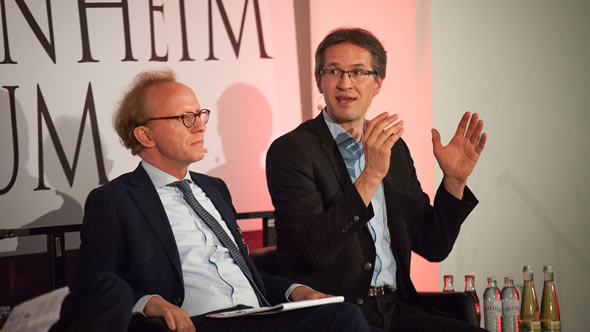Mannheim – ESI at panel debate on transnational governance and workshop on human rights advocacy

ESI's Gerald Knaus was invited to participate in a panel debate on "Governance - from national to transnational?" organised by the Mannheim Forum. Other speakers on the panel were Sascha Spoun, President of the Leuphana University Lüneburg, Joachim Rücker, Former UN-Ambassador, Gaby Umbach, GlobalStat, Founding director, and Sean Klein (Moderator).
Gerald also gave a workshop on "In desperate need of friends - why so much human rights advocacy has no impact". From the workshop announcement:
In his 1953 book "How to Win Friends and Influence People" Dale Carnegie writes about the futility of criticism. "Ninety-nine times out of a hundred, people don't criticize themselves for anything no matter how wrong it may be," he says, pointing to Al Capone. In most cases, criticism is futile and dangerous. In any case "there is only one way under high heaven to get anyone to do anything. And that is by making the other person want to do it."
This is essential advise widely ignored within the human rights movement today. There are, of course, reasons for this. There always are. Advocates might note that what is useful advise for someone selling a car is not relevant when it comes to defending universal norms. "Shaming" those who do evil, exposing abuse by putting the spotlight on it are the master tactics of human rights advocacy. It is irresponsibly naive to believe that abuse can be brought to an end by appealing to "what other people want".
In this workshop I will argue the opposite. We will look at some recent campaigns, in a variety of fields: from political prisoners to torture, from targeted sanctions against human rights abusers to refugee policy. Advocates cannot afford to ignore the Carnegie principles; doing so undermines the best cause; and taking interest seriously also makes for more effective "shaming."
